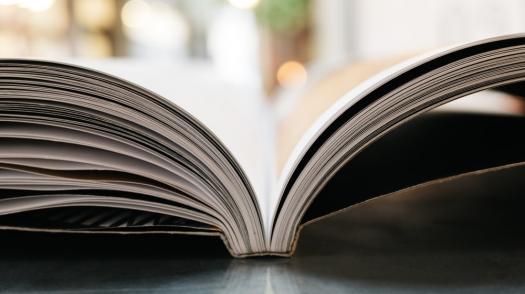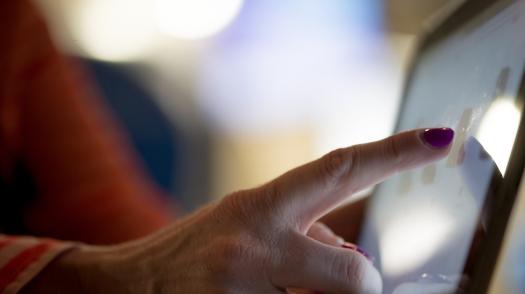Acquired brain injury isn’t very well understood by many people.1, 2 Some parents say they hadn’t heard of it themselves before their child had an acquired brain injury.3
Much of the time, it can be up to parents to pass on the knowledge they’ve picked up along the way to others. This can be tough for some, who may get tired of repeating things.
One of the difficulties with acquired brain injury is how friends and neighbours might misunderstand the condition.4, 5 Difficulties with attention or fatigue, for example, might be unfairly seen as naughtiness or laziness.6, 7
A child’s difficulties with picking up on the unspoken social rules8 around us might make them seem rude in conversation.9 And all of the difficulties may be long-term.10
Parents may struggle with the attitudes of people around them11, or worry about the reactions of others.12 Hopefully, some of these misunderstandings can be avoided if parents try to share information with others.
You know your child best after all13, so you can pass on what you know. Try not to share this kind of information in front of your child – they may feel self-conscious or their feelings may be hurt.
Some children with acquired brain injury struggle to understand the effects of their injury.14, 15 They might not accept that they need help in some areas, and this needs to be considered.
Some children with acquired brain injury are the opposite, in that they are very much aware they are unable to do things they were before. Their feelings are important to bear in mind when talking things through with others.16, 17
If our on-line resource has been useful to you, then perhaps you could pass on the website address to friends or relatives. You could always print off relevant pages to hand over, such as our introduction to acquired brain injury.
Defining acquired brain injury
Let's go back to our original definition of acquired brain injury.
“You might hear it shortened to ‘ABI’. The ‘acquired’ part means only that the child wasn’t born with their injury – it is something that has happened later.”
Other key points to get across are:
- Children and adults are affected differently by acquired brain injury.18
- An injury can interrupt a child’s growing brain when it ‘still has unfinished business’.19, 20 In other words, a child may not go on to pick up some of the skills they otherwise would have.21,22 Adults who sustain a brain injury usually have most of the skills they need under their belt.23
- Some children make a full physical recovery, but there may be ‘hidden’ effects of their brain injury.24
- Some of these might take weeks, months and sometimes years to come to the surface.25
- Each child responds differently to their injury.26
- Nobody has all the answers with acquired brain injury.27 It’s not clear at what speed recovery will take place, or if a child will ever be quite as they were.10
It's a very difficult thing to talk about other people to, I think. Every child's injury is completely different, so acquired brain injury isn't as simple as saying 'my child has trouble with X or Y'. You're still trying to work those things out for yourself."A parent
Questions parents may be asked
Can it be cured?
The brain is the most sophisticated part of our bodies, and so any injury to it is equally complex.28 There is no single ‘cure’ or simple treatment for acquired brain injury, and some children may never be just as they were before their injury.29, 30
Improvements children make are best thought of as part of a long-term process. But it is a process that can be greatly helped along by different treatments and therapies.
So how will your child be affected in the long run?
Again, there’s nothing wrong in explaining that nobody has all the answers. Even the experts may not know what the outcome will be.
But in all this uncertainty there is also great possibility. The doctors might not be able guarantee a full recovery, but neither can they rule out the dramatic improvements many families have witnessed.31, 32
Should I behave differently around your child now?
No. But there’s no harm in being aware of particular effects of acquired brain injury like fatigue.33 Children with acquired brain injury may experience tiredness of the body and of the mind and senses.34
This is just something to bear in mind when talking to a child with an acquired brain injury, as they may be irritable.35 Most people have experienced that feeling of irritability when they’re tired.
There may be other things someone should bear in mind when speaking with your child. Perhaps a child struggles with keeping up in conversations and needs to be given time to digest information.36, 37 They may struggle to communicate clearly.
Perhaps the child feels irritated at being spoken to as someone might speak to a younger child.
There’s also the danger that all the effects of acquired brain injury described above may be misunderstood 6 or not appreciated.38 A child may be struggling with motivation because of their acquired brain injury 39 but someone who doesn’t know a great deal about acquired brain injury may mistake this for laziness.
It’s also very important for others to remember that a child will almost certainly have experienced a very difficult time. They may be anxious, sad, frightened, or embarrassed about difficulties they may have.40
Talking with siblings about acquired brain injury
It can be very difficult to judge just how much to explain to a sibling and at what time. You might ask yourself, ‘aren’t they too young to understand this?’ or ‘Should we tell them everything?’
Some siblings worry that their parents act as ‘gatekeepers’ of information,41, 3 deciding what they can and can’t know.42 They may feel they’re not involved, or are being ‘kept out of the loop’, which may lead to resentment.43
Nevertheless, there are some things – particularly the physical circumstances of acquired brain injury – that may be distressing for young children.44 It can be useful to take your cues from the child themselves. If they’re asking about certain things, it’s clear they want to know more. Try to give them as much or as little information as they want.
The evidence suggests honesty is the best policy when talking to children about illness.45, 46 If you don’t know something, or the outcome of a particular situation isn’t clear, then in some circumstances it may be best to say so. Siblings are a crucial part of the family and the recovery process,47 and it’s important they’re not kept out of the loop.48
Talking to your employer about acquired brain injury
This will very much depend on your child and how much support they need. Many children experience long-term difficulties because of their acquired brain injury. These can impact on parents’ working hours. It’s important that you find out more about employment and your rights in the workplace.


